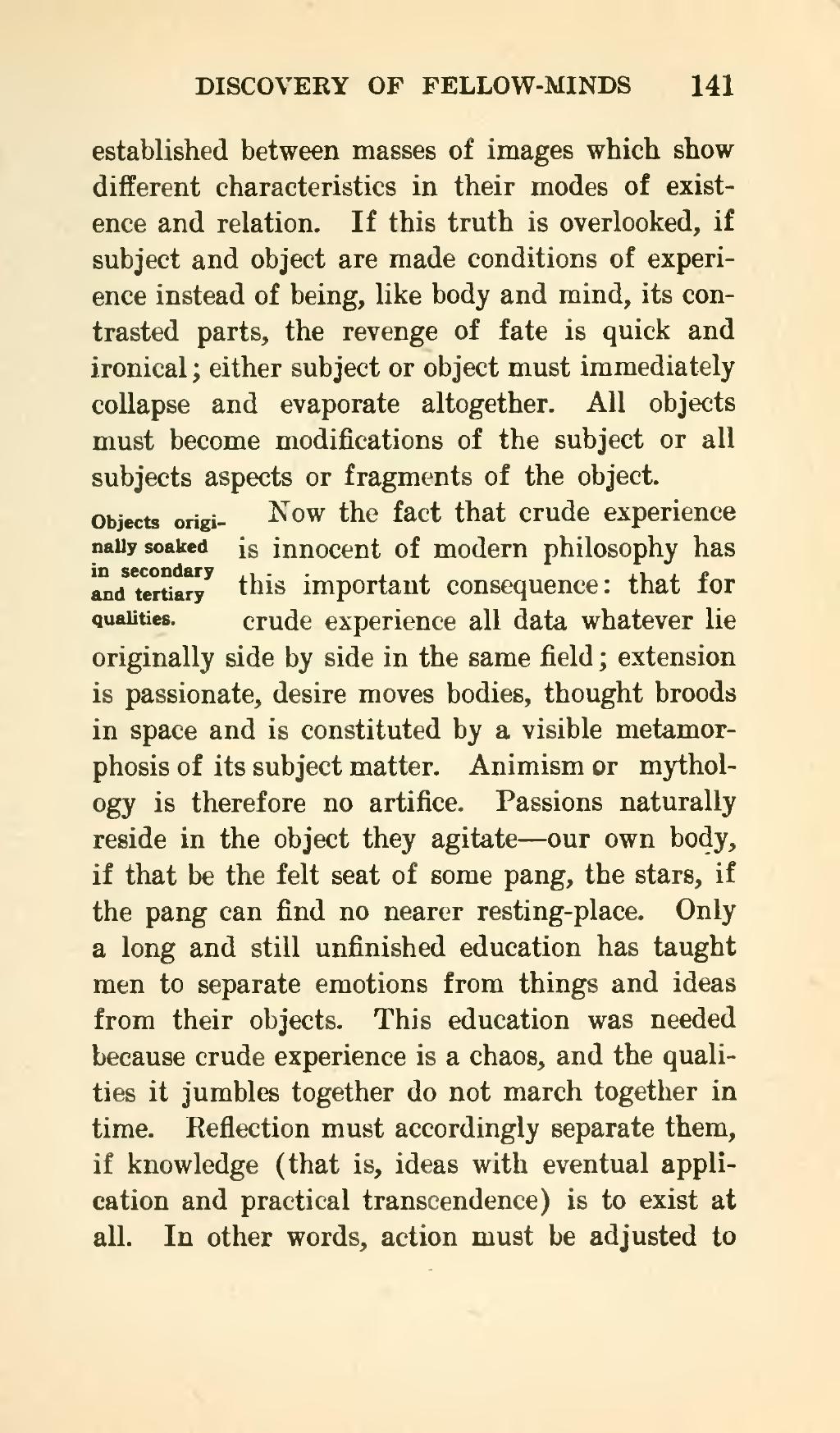established between masses of images which show different characteristics in their modes of existence and relation. If this truth is overlooked, if subject and object are made conditions of experience instead of being, like body and mind, its contrasted parts, the revenge of fate is quick and ironical; either subject or object must immediately collapse and evaporate altogether. All objects must become modifications of the subject or all subjects aspects or fragments of the object.
Now the fact that crude experience is innocent of modern philosophy has this important consequence: that for crude experience all data whatever lie originally side by side in the same field; extension is passionate, desire moves bodies, thought broods in space and is constituted by a visible metamorphosis of its subject matter. Animism or mythology is therefore no artifice. Passions naturally reside in the object they agitate—our own body, if that be the felt seat of some pang, the stars, if the pang can find no nearer resting-place. Only a long and still unfinished education has taught men to separate emotions from things and ideas from their objects. This education was needed because crude experience is a chaos, and the qualities it jumbles together do not march together in time. Reflection must accordingly separate them, if knowledge (that is, ideas with eventual application and practical transcendence) is to exist at all. In other words, action must be adjusted to
